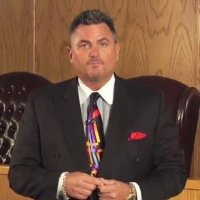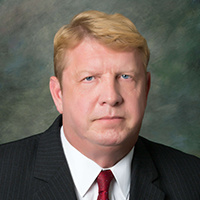 Sunderland Felony Lawyers, Maryland
Sunderland Felony Lawyers, Maryland
Sponsored Law Firm
-
 x
x

Click For More Info:
-
James E. Crawford, Jr. & Associates, LLC
999 Corporate Blvd. Suite 100 Linthicum, MD 21090» view mapCriminal Defense, Divorce & Family Law Move Forward With Confidence
Our Firm's team of family, criminal, and business lawyers understand that each case presents unique challenges and must be met with equally unique approaches.
800-789-9220
Sponsored Lawyers
1-8 of 8 matches
Criminal, DUI-DWI, Felony, Misdemeanor, Internet
Annapolis Criminal Defense Law Firm If you face criminal charges, an experienced and respected defense lawyer can help protect your rights, evaluate possible defenses, negotiate preferential plea bargains and use every facet of the law in your defense. At the Law Offices of Charles L. Waechter, Attorney at Law, I have more than 30 years of experience defending people accused of all types of criminal charges, ranging from DWI and DUI to sex offenses and murder. I'm known as an aggressive and hard-hitting defense lawyer who will fight hard to keep your record as clean as possible and to minimize the effect of an arrest on your life. With offices in Baltimore, Annapolis, Ocean City and Bel Air, I offer four convenient locations for people who are charged with crimes in Maryland. No matter what kind of charges you face, I offer free initial consultation by phone or in one of my offices. If you are incarcerated, I can also meet with you in jail. A Serious Lawyer for Serious Charges I have the experience and knowledge to defend you against the most serious criminal charges such as Federal and State internet child pornography, sex offenses, DUI and DWI, drug offenses, solicitation and prostitution, assault and battery, and general traffic tickets, which can have a devastating effect on your life. I will review the documents charging you with a crime, investigate the circumstances of your arrest and determine if any evidence should be suppressed. For example, if the police violated your Fourth Amendment constitutional rights against unreasonable search and seizure, I will seek to have the charges dismissed.
(more)DUI-DWI, Traffic, Family Law, Personal Injury, Felony
Robin K. Henley serves as an attorney at Henley & Henley, Attorneys at Law in Annapolis, Maryland, handling criminal defense, family law, and personal injury matters. With over a decade of experience addressing complex legal issues, he represents clients in the Baltimore metropolitan area, as well as in Anne Arundel, Dorchester, Kent, Queen Anne’s, Somerset, Talbot, Wicomico, and Worcester counties. Over the course of his career, Henley has received several honors for his case results. The National Trial Lawyers named him one of the “Top 100 Trial Lawyers” and one of the “Top 40 Under 40,” and in 2018, What’s Up? Media recognized him as a “Leading Legal Professional.” Along with managing his practice and caseload, Henley actively participates in leadership roles within his professional community. He is a member of the Maryland State Bar Association and the Anne Arundel County Bar Association, and he previously served as president and vice president of the Queen Anne’s County Bar Association. He is also a fellow in the Maryland Bar Foundation. Henley maintains an ongoing role in the Maryland Criminal Defense Attorneys’ Association, having served on its board of directors and in various positions, including president, first vice president, second vice president, and treasurer. He received his law degree from the University of Baltimore School of Law and has been licensed to practice since 2005, allowing him to appear before all Maryland state courts. To schedule your free consultation, call 410-280-0530 or complete our contact form.
(more)Divorce & Family Law, Misdemeanor, Felony, Contract, Juvenile Law
I have had the privilege of being in private law practice in Maryland for the last 19 years. I was a judicial law clerk for the Honorable Howard S. Chasanow, both on the Circuit Court for Prince George's County, as well as on the Maryland Court of Appeals. Since 1990, I have also enjoyed tutoring some of Maryland's finest and brightest attorneys for the Maryland Essay Exam; all whom have been successful. Specialties Maryland does not allow for publication of specialty areas for private practitioners. My private practice consists of a general practice, focusing on litigation in the areas of family law, juvenile and criminal law matters, contract law, representing business clients of various sizes, including area churches involving legal matters, employment law, bankruptcy law, and personal injury law.
(more)Criminal, Civil & Human Rights, Employment, Business, Felony
The Law Offices of Attorney Patricia (Pat) Cresta-Savage offers clients the advantage of an experienced attorney with over 20 years of advisory and courtroom litigation experience providing independent legal representation in civil actions, civil rights, and criminal defense. She is a licensed member of the bar in DC, MD and NH, and can represent clients in several different courts. In CRIMINAL DEFENSE, she has effectively represented those charged in Maryland, the District of Columbia, and New Hampshire with many different types and degrees of crimes, including but not limited to serious offenses such as: felony murder, assault with intent to kill, armed robbery, carjacking, possession and/or distribution of controlled substances, felon in possession of firearms, embezzlement, credit card fraud, as well as lesser criminal charges of many kinds. In CIVIL RIGHTS, she has successfully represented clients in civil actions concerning police brutality, gender discrimination, sexual harassment, race discrimination, and employment law. She was co-counsel in a landmark Maryland decision concerning the unconstitutional retroactive application of sex offender registration law: Doe v. Department of Public Safety & Correctional Services, 430 Md. 535, 62 A.3d 123 (2013)
(more)Divorce & Family Law, Criminal, DUI-DWI, Felony, Child Custody
**Helping Good People in Tough Situations Since 1992** My name is Jim Crawford. I founded the Law Office of James E. Crawford, Jr., & Associates -- JC Law -- back in 1992 to protect Maryland's most vulnerable against a biased legal system while helping them get their lives back. As our clients' legal needs have grown, the Firm has grown with them to provide the same level of legal expertise and guidance in every aspect of Maryland law. I and my Firm's team of family, criminal, & business lawyers understand that each case presents unique challenges and must be met with equally unique approaches. We commit to providing clients with: + An overall professional and positive experience; + Respect and compassion during often difficult times; + Experienced attorneys with a deep understanding of the judicial system and every aspect of Maryland law; and + Zealous legal representation to champion the client’s best interests in every situation. **Criminal Defense Against Maryland State & Federal Charges** For the past 28 years, I personally have defended people who have been charged with crimes in Baltimore, Catonsville, Annapolis, Bel Air and throughout every county and courtroom in Maryland. My trial experience is extensive. I am in court in front of judges and juries almost every day of my working life. Criminal defense is about more than knowing the law; it's also about understanding people. Judges, prosecutors, lawyers, police, and defendants all bring variables that can alter the outcome of a criminal case. At JC Law, our job is to stand next to you in your hour of need and help you get your life back. + Traffic & DUI Charges + Sex Crimes, including Rape & Sex Offenses + Child Pornography Investigations & Charges + Federal Charges, including Bribery, Fraud, Conspiracy, Embezzlement, Identity Theft, & Perjury + Domestic Assault & Violent Crimes, including Murder, Aggravated Assault, Abuse, Kidnapping, & Arson + Juvenile Offenses & College Misconduct, including Underage Drinking, Cyberbullying, Academic Misconduct, & Minor-related Sex Offenses + Drugs & Weapons Charges, including Armed Robbery & Weapon Possession at School + Court System Matters, including Warrants, Bail Hearings, Probation Violations, & Expungements If you are already charged or believe you are under investigation by a state agency such as the police or the federal government, it is extremely important that you retain the services of a highly qualified lawyer immediately. The quicker we have an understanding of the facts, the easier it is to push your case to resolution. **Domestic & Family Legal Services for Maryland Families** At JC Law, we help Maryland families form the best futures for themselves and their children through the legal system. We will stand with you through it all, doing whatever is necessary to make sure your case closes with a happy ending – and a bright new beginning. + General Divorce Services, including Prenuptial Agreements & Post-Divorce Modifications + Marital Settlement Agreements (MSAs) + Mediation Services + Men's Divorce Services, including Paternity & Father's Rights + Military Family Law, especially unique Divorce & Property Division requirements + Child-Related Services, including Custody, Visitation, & Child Support; Adoption; Grandparents' Rights; and Reproductive Technology + Alimony Negotiations + Protective & Peace Orders, both Emergency & Final + Contempt of Court **Business & Civil Litigation** JC Law helps our business & civil litigation clients keep their head in the game, not the courtroom. Our expert team of business & civil litigators defend your business when legal issues appear to sap your time, attention, and resources away from what truly matters: Your professional success and livelihood. + Business Services, including Corporate Transactions & Legal Guidance, Government Contracts, Mergers & Acquisitions, and Business Organization Creation + Civil Litigation, including the Defense of Professionals, Government Investigations, and Coronavirus Issues + Real Estate, including Property-Related Dispute Resolution, Leasing, Zoning & Permitting, Liens, and Settlements + Sports & Entertainment Law, including Contracts, Litigation & Disputes, Title IX & Title VII Issues, Arbitration & Mediation, and Public Relations **General Legal Services: Your Legal Champions, Always** I want my Firm to be your go-to legal resources whenever a legal issue arises. From immigration and bankruptcy to wills and worker's comp, we are always on your side. + Wills, Estates, & Trusts, including Estate Planning, POAs & Living Wills, Trust Administration, Estate Litigation, Elder Law, and Inheritance Disputes + Bankruptcy, including Personal Bankruptcy, Business Bankruptcy, Foreclosure, and Debt Consolidation + Personal Injury, including Vehicular & Driver Accidents, Medical Malpractice, Products Liability, and Swimming Pool Injuries + Worker's Compensation, including Appeals & Hearings, Death & Dependent Claims, Settlements & Compensation, Workplace Accidents, Pre-Existing Conditions, and Fraudulent Petitions Learn more about me and my team at JamesCrawfordLaw.com.
(more)Criminal, DUI-DWI, Felony, Traffic, Expungement
Prior to joining Scrofano Law PC, Ms. Gnocchi was a solo practitioner who specialized in criminal and DUI defense for 14 years. Prior to that Mr. Gnocchi worked at a law firm in Maryland and began his career as an Assistant States Attorney in Baltimore City. During his time as a solo practitioner, he represented thousands of individuals charged with crimes in Maryland and the District of Columbia in a variety of offenses ranging from traffic offenses to serious violent felonies. In 2023, he joined Scrofano Law PC as a Trial Attorney and started the firm’s Maryland Practice. He is licensed to practice in the District of Columbia and Maryland. He is an active member of the Montgomery County Bar Association, the National Association of Criminal Defense Lawyers, and the National College for DUI Defense as well as the DUI Defense Lawyer’s Association. Mr. Gnocchi is a native Spanish speaker and fluent in both English and Spanish and has over 20 years experience in criminal law.
(more)


 James Crawford, Jr. Linthicum, MD
James Crawford, Jr. Linthicum, MD Practice AreasExpertise
Practice AreasExpertise







